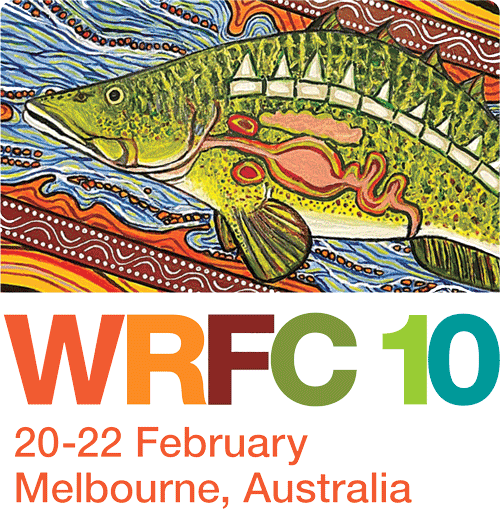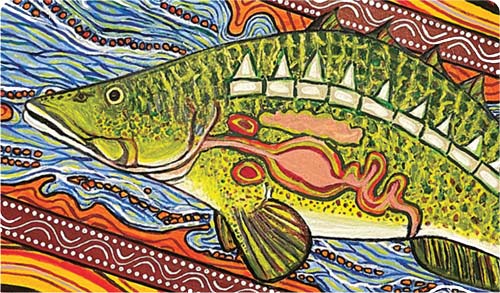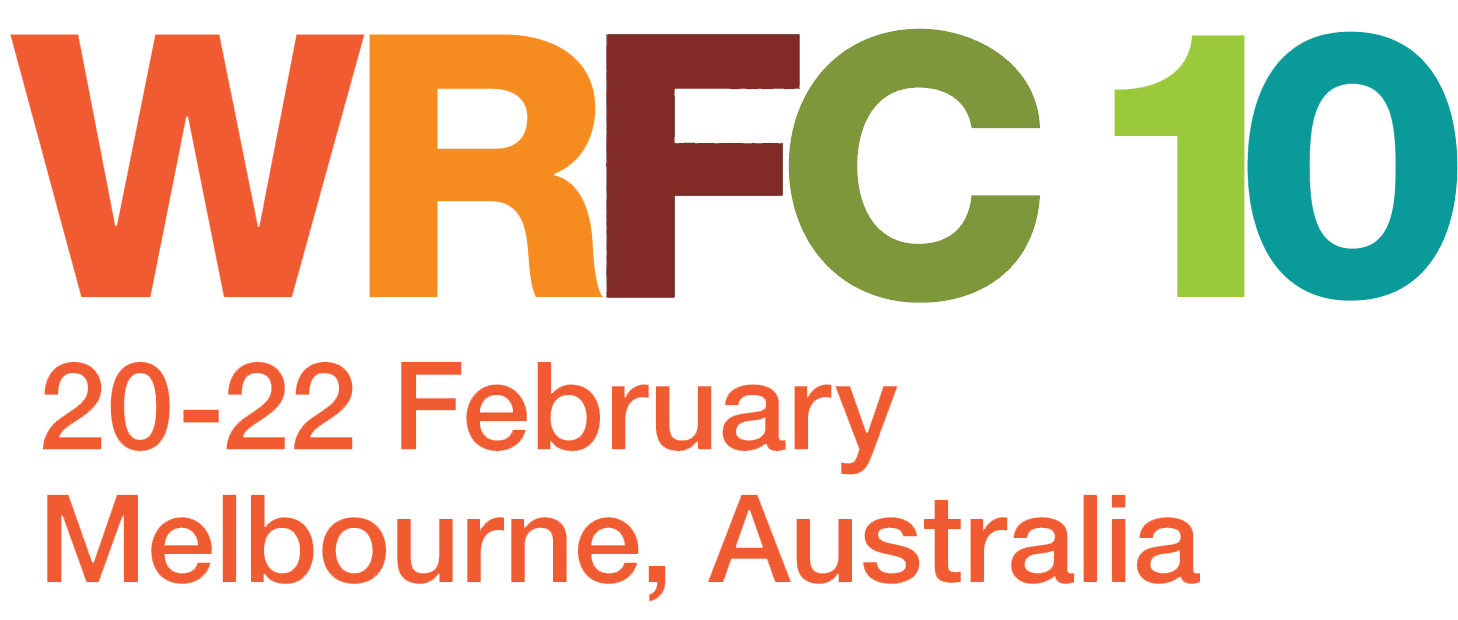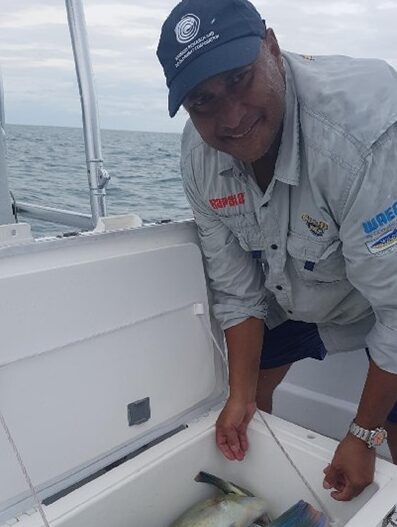
Stan Lui
First Nations Peoples – Interactions with Recreational Fisheries and Opportunities
Meet Stan Lui, one of our fabulous and esteemed Keynote Speakers who will be leading the theme “First Nations Peoples – Interactions with Recreational Fisheries and Opportunities”.
Stan Lui is a Torres Strait Islander from Erub (Darnley Island) in the top eastern Torres Strait, is a graduate of James Cook University and has worked in senior managerial roles with both State and Commonwealth Agencies in Fisheries Management, Aquaculture Development, and Natural Resource Management.
Stan believes that both Indigenous and the recreational fishing sector share a lot of similar values. The experience of fishing and the passing of information through stories, teaching, and the connection to the environment by being in nature is a foundation block for the awareness of how interwoven the marine and land ecosystems are. How we treat the land will ultimately affect the health of the oceans.
The concepts around fisheries management among Indigenous and non-Indigenous people are similar too, just couched in different terms.
When Indigenous communities talk about storylines, this equates to migratory patterns in the equivalent scientific terminology. Management speak, such as biomass limits (BLIMs) and total allowable catches (TACs) have their equivalent in Indigenous practices, learned in childhood. For example, to never take as much as you can, but always leave some behind to regenerate so that there is more to harvest next time.
Stan Lui is a Torres Strait Islander from Erub (Darnley Island) in the top eastern Torres Strait, is a graduate of James Cook University and has worked in senior managerial roles with both State and Commonwealth Agencies in Fisheries Management, Aquaculture Development, and Natural Resource Management.
Stan believes that both Indigenous and the recreational fishing sector share a lot of similar values. The experience of fishing and the passing of information through stories, teaching, and the connection to the environment by being in nature is a foundation block for the awareness of how interwoven the marine and land ecosystems are. How we treat the land will ultimately affect the health of the oceans.
The concepts around fisheries management among Indigenous and non-Indigenous people are similar too, just couched in different terms.
When Indigenous communities talk about storylines, this equates to migratory patterns in the equivalent scientific terminology. Management speak, such as biomass limits (BLIMs) and total allowable catches (TACs) have their equivalent in Indigenous practices, learned in childhood. For example, to never take as much as you can, but always leave some behind to regenerate so that there is more to harvest next time.
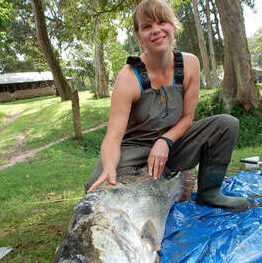
Beth Nyboer
Climate Change Impacts and Adaptation Measures
Meet Beth Nyboer, another brilliant mind and one of our Keynote Speakers who will be leading the theme “Climate Change Impacts and Adaptation Measures”.
Beth is a freshwater and conservation scientist who explores how anthropogenic stressors affect freshwater ecosystems and the fish, fisheries, and fishing communities they support. She uses transdisciplinary approaches to integrate community perspectives alongside social, ecological, and environmental data to understand the vulnerability of these systems to environmental change and to find equitable solutions to social-ecological challenges.
Read more about Beth and her research here: https://elizabethnyboer.weebly.com/
Beth is a freshwater and conservation scientist who explores how anthropogenic stressors affect freshwater ecosystems and the fish, fisheries, and fishing communities they support. She uses transdisciplinary approaches to integrate community perspectives alongside social, ecological, and environmental data to understand the vulnerability of these systems to environmental change and to find equitable solutions to social-ecological challenges.
Read more about Beth and her research here: https://elizabethnyboer.weebly.com/
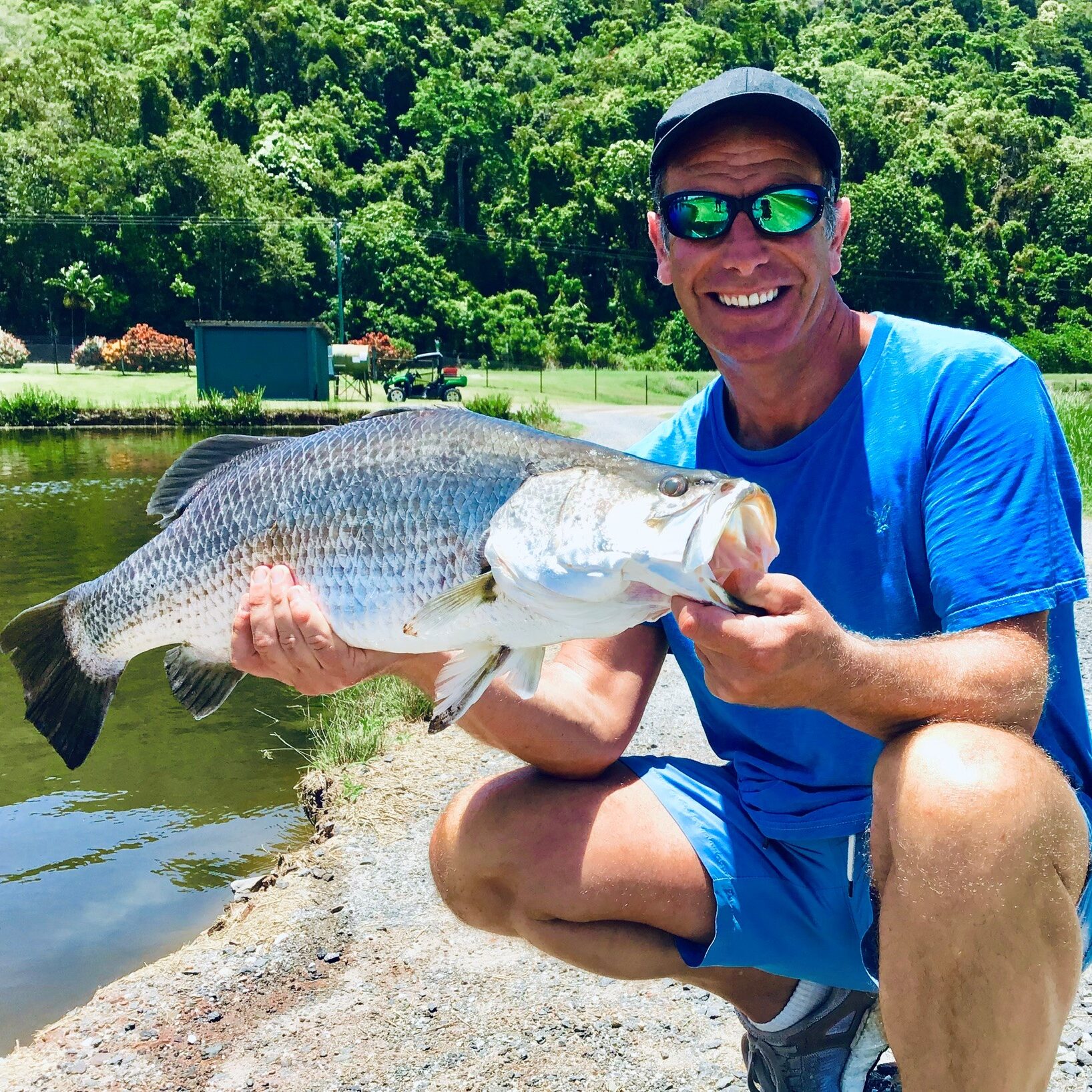
Robson Green
The power of fishing as therapy
Actor and presenter of the Extreme Fishing TV series Robson Green will join us as a keynote to share his fishing journey and talk about the great work of the Atlantic Salmon Trust in his role as ambassador and how his passion and love of fishing has become his therapy.
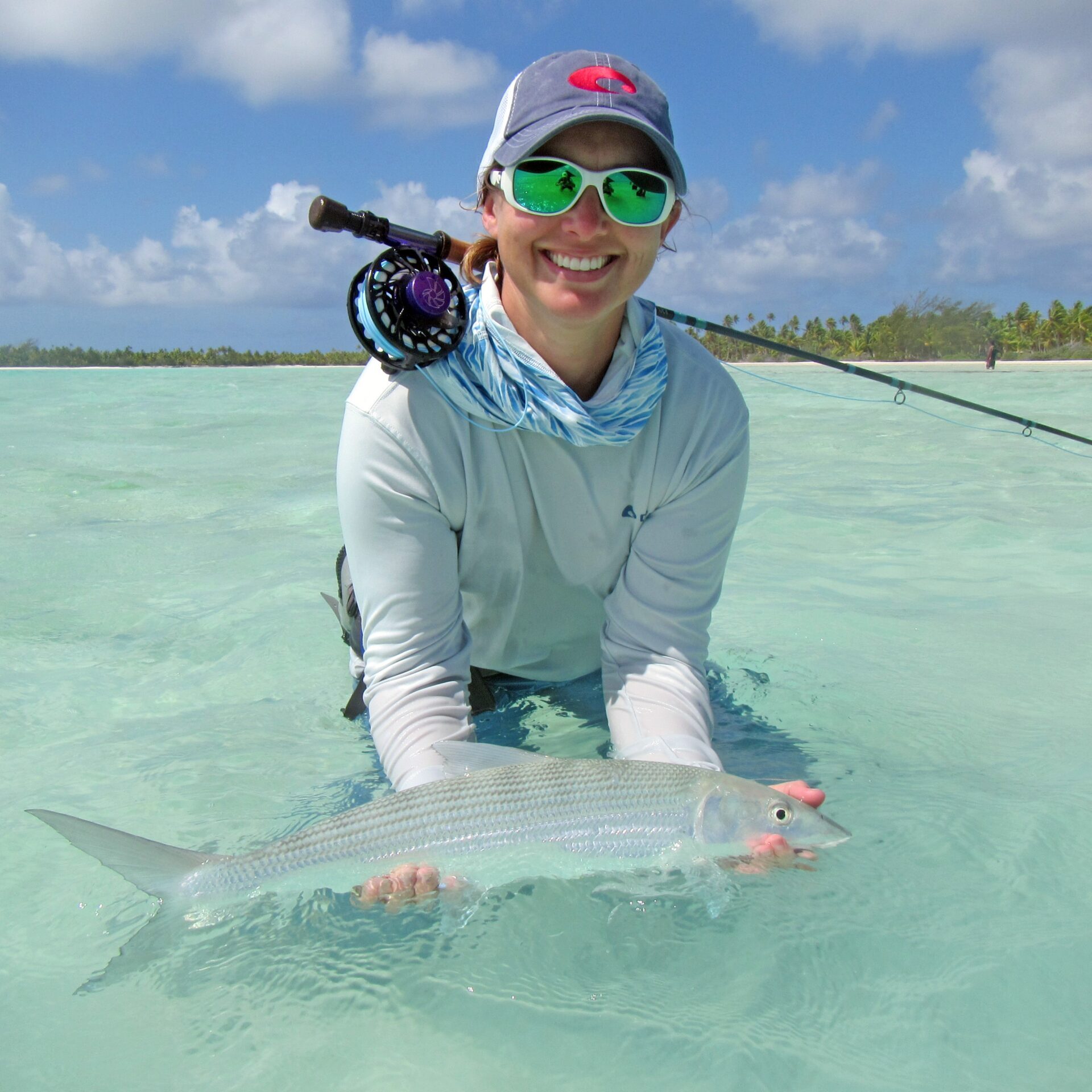
Sascha Clark Danylchuk
How to build a bridge — lessons learned from working to enhance knowledge exchange between fisheries scientists and recreational anglers
The importance of communicating applicable fisheries science to recreational anglers cannot be underestimated. Equally valuable is creating opportunities for fisheries scientists to listen to recreational anglers to help ensure that their science is grounded. Keep Fish Wet is a US based non-profit with a mission to help anglers improve the outcome for each fish they release. While the main focus of Keep Fish Wet is to convey a consistent and persistent message about the science-based best practices for catch-and-release, we also utilize various strategies to facilitate communication and information sharing in both directions. This is not always an easy task and some of the hurdles have been unexpected. Given the increase in grassroots movements to disseminate best practices to anglers, the lessons learned from Keep Fish Wet have the potential to be of great benefit to other groups engaged in angler outreach related to best practices and broader natural resources conservation.
Sascha Clark Danylchuk is the Executive Director of Keep Fish Wet, a US-based nonprofit dedicated to helping anglers improve the outcome for each fish they release. Sascha has a M.S. in Aquatic Ecology from University of Illinois Urbana-Champaign and has focused much of her scientific work on recreational angling, specifically the science of catch-and-release. With a strong belief that recreational anglers have something to learn from fisheries scientists and that scientists need to make their work accessible to a wider audience, Sascha endeavors to develop a space in which effective communication and changing social norms can help create more resilient recreational fisheries around the world.
Sascha Clark Danylchuk is the Executive Director of Keep Fish Wet, a US-based nonprofit dedicated to helping anglers improve the outcome for each fish they release. Sascha has a M.S. in Aquatic Ecology from University of Illinois Urbana-Champaign and has focused much of her scientific work on recreational angling, specifically the science of catch-and-release. With a strong belief that recreational anglers have something to learn from fisheries scientists and that scientists need to make their work accessible to a wider audience, Sascha endeavors to develop a space in which effective communication and changing social norms can help create more resilient recreational fisheries around the world.
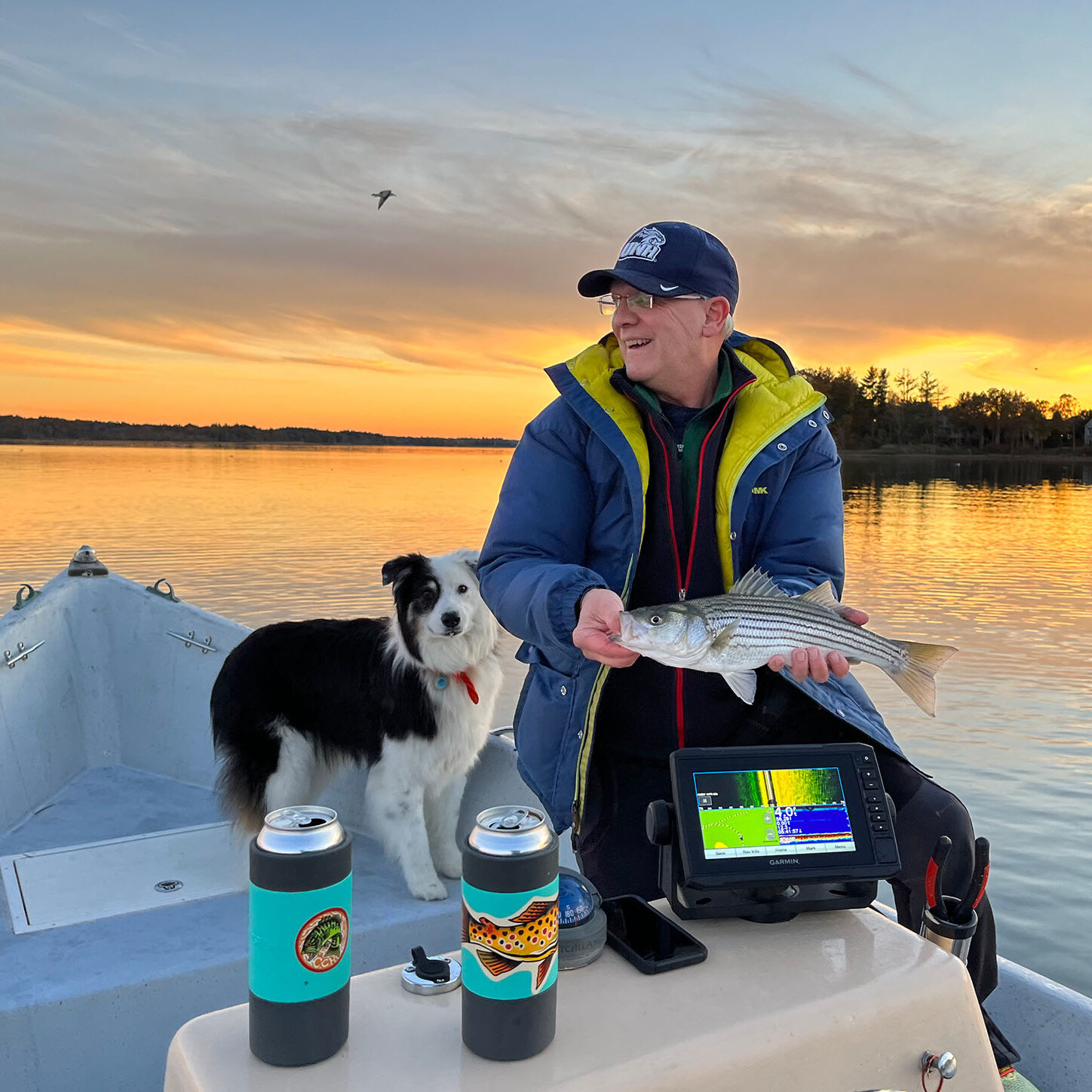
Steve Moyer
Stewardship
Steve Moyer serves as Vice President for Government Affairs at Trout Unlimited’s headquarters in Arlington, VA. He is TU’s senior advocate on Capitol Hill and with federal agencies. He works with TU’s local chapters and state councils to help them with their state and local advocacy efforts and develops and implements TU grassroots advocacy campaigns.
Steve has been extremely fortunate to work in the fish and wildlife conservation field since 1980, and for Trout Unlimited for the past 29 years. For his conservation accomplishments – most assuredly NOT for his fishing prowess—he was inducted into the Freshwater Fishing Hall of Fame in 2014.
Prior to his tenure at Trout Unlimited, he led advocacy efforts at the National Wildlife Federation on behalf of fisheries, wetlands and related appropriations legislation. He holds a B.S. in Wildlife Management from the University of Maine and an M.S. in Fisheries Science from Virginia Tech.
TU’s mission is to conserve, protect, and restore the nation’s trout and salmon fisheries and their watersheds. TU has 300,000 members and supporters in 380 chapters nationwide.
Steve has been extremely fortunate to work in the fish and wildlife conservation field since 1980, and for Trout Unlimited for the past 29 years. For his conservation accomplishments – most assuredly NOT for his fishing prowess—he was inducted into the Freshwater Fishing Hall of Fame in 2014.
Prior to his tenure at Trout Unlimited, he led advocacy efforts at the National Wildlife Federation on behalf of fisheries, wetlands and related appropriations legislation. He holds a B.S. in Wildlife Management from the University of Maine and an M.S. in Fisheries Science from Virginia Tech.
TU’s mission is to conserve, protect, and restore the nation’s trout and salmon fisheries and their watersheds. TU has 300,000 members and supporters in 380 chapters nationwide.
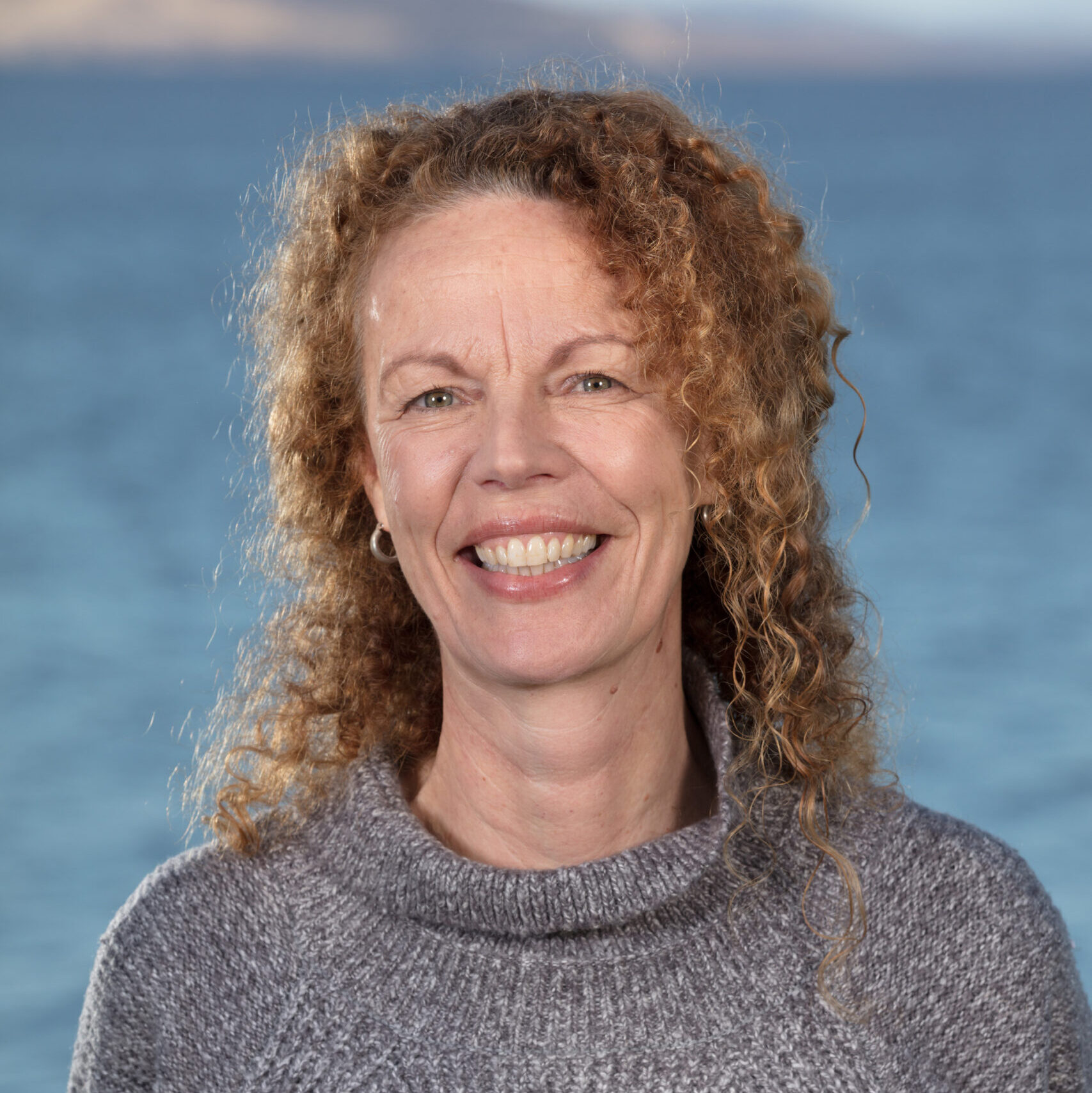
Ingrid van Putten
Implications of a changing Australian demographic for recreational fishing
Recreational fishing is a popular activity in Australia. In the past, estimates of participation at the national scale have not been collected regularly and knowledge of some aspects (like motivation and behaviours) are incomplete at this scale. But changes are highly likely to have taken place over the past decades alongside a changing Australian demographic. With two decades of Census data now available it is possible to track demographic change in Australia. The change in current and potential new recreational fisher groups resulting from demographic change may provide new challenges for recreational fisheries managers. An outline of these challenge in terms of communication, education, and compliance are already evident in some fisheries. Implications of demographic changes for incentive-based recreational fisheries management alongside deterrence policies will be an important management consideration for the medium and long term.
Ingrid is a Senior Research Scientist with CSIRO Oceans and Atmosphere and an Adjunct Professor at the Centre of Marine Socioecology, at the University of Tasmania. With a background in economics, she is particularly interested in understanding why people make certain social and economic decisions as users of the marine environment. If we know why people make certain decision, we can figure out how to best influence people’s behaviour whether it is to reduce impacts, risks, or to adapt to a changing environment.
Ingrid is a Senior Research Scientist with CSIRO Oceans and Atmosphere and an Adjunct Professor at the Centre of Marine Socioecology, at the University of Tasmania. With a background in economics, she is particularly interested in understanding why people make certain social and economic decisions as users of the marine environment. If we know why people make certain decision, we can figure out how to best influence people’s behaviour whether it is to reduce impacts, risks, or to adapt to a changing environment.
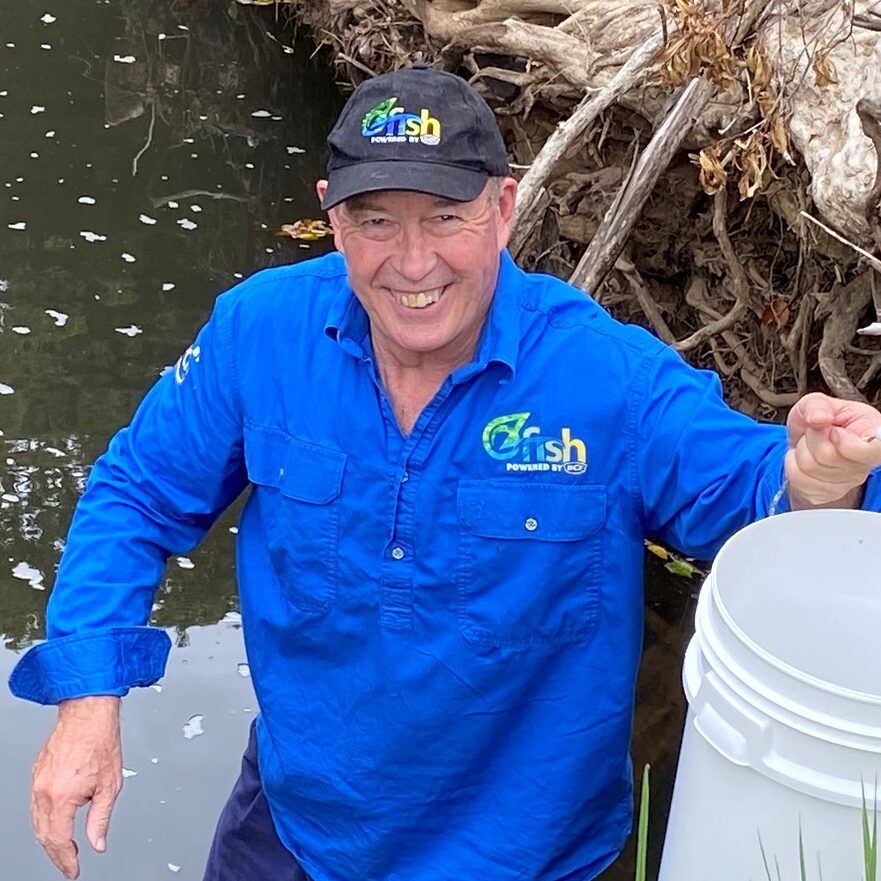
Craig Copeland
Stewardship - Recreational fishers, Australia's aquatic conservationists
Craig is the CEO and Founder of OzFish Unlimited. He has been leading the protection and restoration of fish habitat throughout Australia for over 30 years. He has led ground-breaking work in fish passage restoration, wetland rehabilitation, river resnagging as well as floodgate and acid sulphate soil management. He has been responsible for the advancement of recreational fishers undertaking river health projects around Australia, a Churchill Fellowship reviewing examples of best practice habitat management by recreational fishers around the world and the subsequent creation of OzFish Unlimited.
Some of the biggest aquatic environmental projects in Australia are now being driven by recreational fishers. That required the development of OzFish Unlimited and a wide array of partners and funders and thousands of recreational fishers willing to get active on behalf of their waterways. Much more can be done; there are a lot more recreational fishers to get involved, legislation blocking restoration to be fixed, Ministers and agencies yet to be convinced and philanthropists to be brought on board. Craig's keynote will review the path taken by OzFish over the last 7 years and the actions needed in the near future to create opportunities for dramatic improvements in waterway restoration and fisheries outcomes.
Some of the biggest aquatic environmental projects in Australia are now being driven by recreational fishers. That required the development of OzFish Unlimited and a wide array of partners and funders and thousands of recreational fishers willing to get active on behalf of their waterways. Much more can be done; there are a lot more recreational fishers to get involved, legislation blocking restoration to be fixed, Ministers and agencies yet to be convinced and philanthropists to be brought on board. Craig's keynote will review the path taken by OzFish over the last 7 years and the actions needed in the near future to create opportunities for dramatic improvements in waterway restoration and fisheries outcomes.
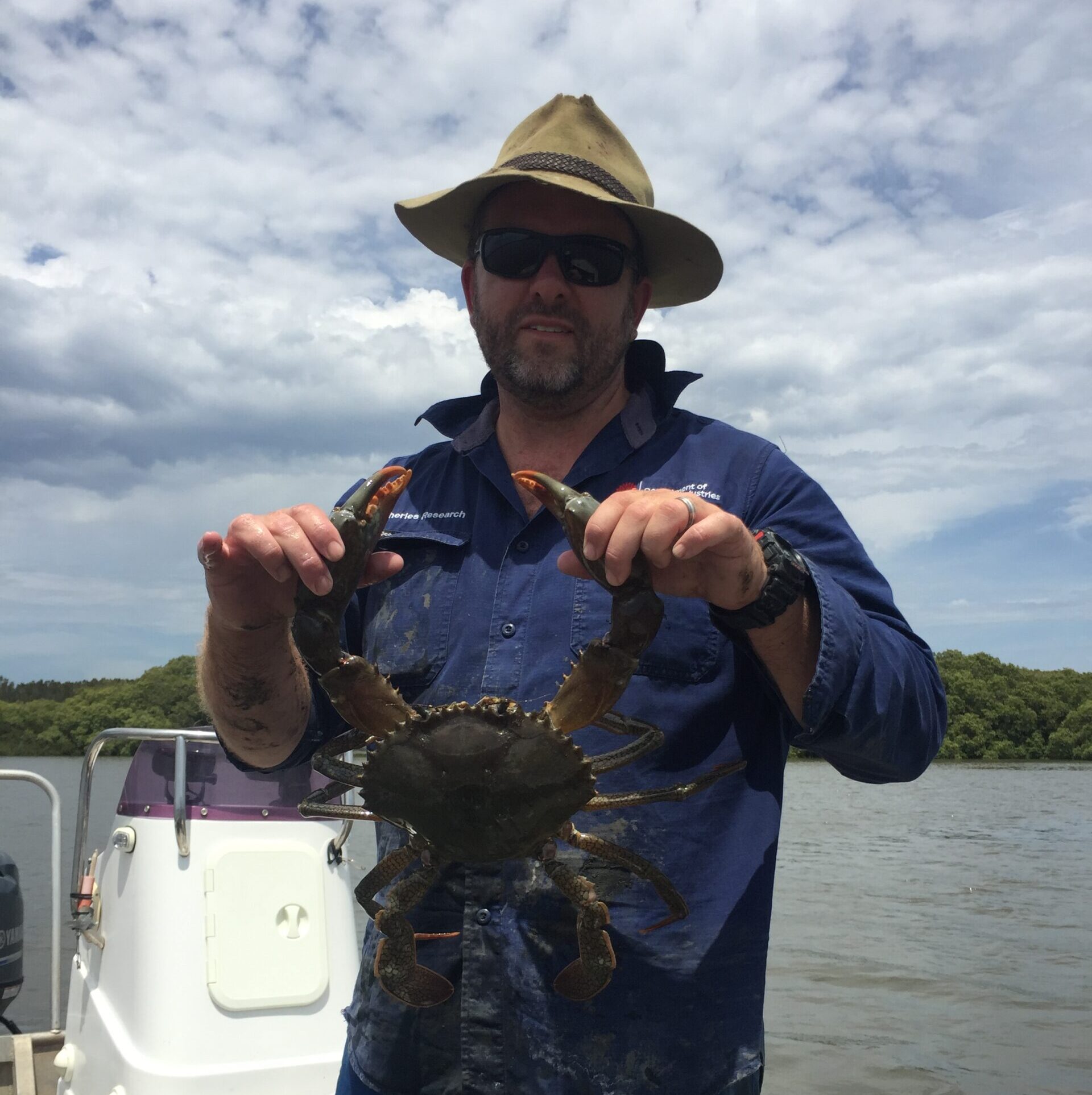
Matt Taylor
Citizen science can answer more questions than you think
Meet Prof Matt Taylor, Principal Research Scientist and Program Leader—Recreational Fisheries Research with the New South Wales Department of Primary Industries. His research career has encompassed a diverse portfolio of work focussed on the scientific development and implementation of innovative approaches to improve fisheries productivity and sustainability, with a focus on recreational fisheries enhancement and fish habitat repair. His current research program continues this theme, alongside the development and expansion of recreational fisheries monitoring programs, research to guide the management of contaminant exposure for recreational fishers, as well as ongoing work on the fisheries ecology of important recreational species (particularly invertebrate species). He leads a productive team of recreational fisheries scientists that work at the interface between science and management, and he has authored 190 peer-reviewed contributions to the international literature.
Matt's keynote will tackle the subject of the role citizen science plays in fisheries monitoring and management. Many fishers contribute to citizen science projects either through collection of data on their fishing activities, telling scientists about their fishing experiences, or collecting and providing physical samples for further analysis. But where does that contribution lead and where does the ‘rubber hit the road’ with the fisher-derived data? Using his experience as a government scientist as a platform, Matt will outline some of the citizen scientist and data/sample collection programs undertaken in New South Wales (Australia) and present some examples that capture the diverse and surprising ways these data are used in aiding contemporary management within a fisheries agency. The tendrils of fisher-derived data percolate a substantial number of management questions, and form an essential part of the evidence base supporting both day-to-day management and broader policy.
Matt's keynote will tackle the subject of the role citizen science plays in fisheries monitoring and management. Many fishers contribute to citizen science projects either through collection of data on their fishing activities, telling scientists about their fishing experiences, or collecting and providing physical samples for further analysis. But where does that contribution lead and where does the ‘rubber hit the road’ with the fisher-derived data? Using his experience as a government scientist as a platform, Matt will outline some of the citizen scientist and data/sample collection programs undertaken in New South Wales (Australia) and present some examples that capture the diverse and surprising ways these data are used in aiding contemporary management within a fisheries agency. The tendrils of fisher-derived data percolate a substantial number of management questions, and form an essential part of the evidence base supporting both day-to-day management and broader policy.
